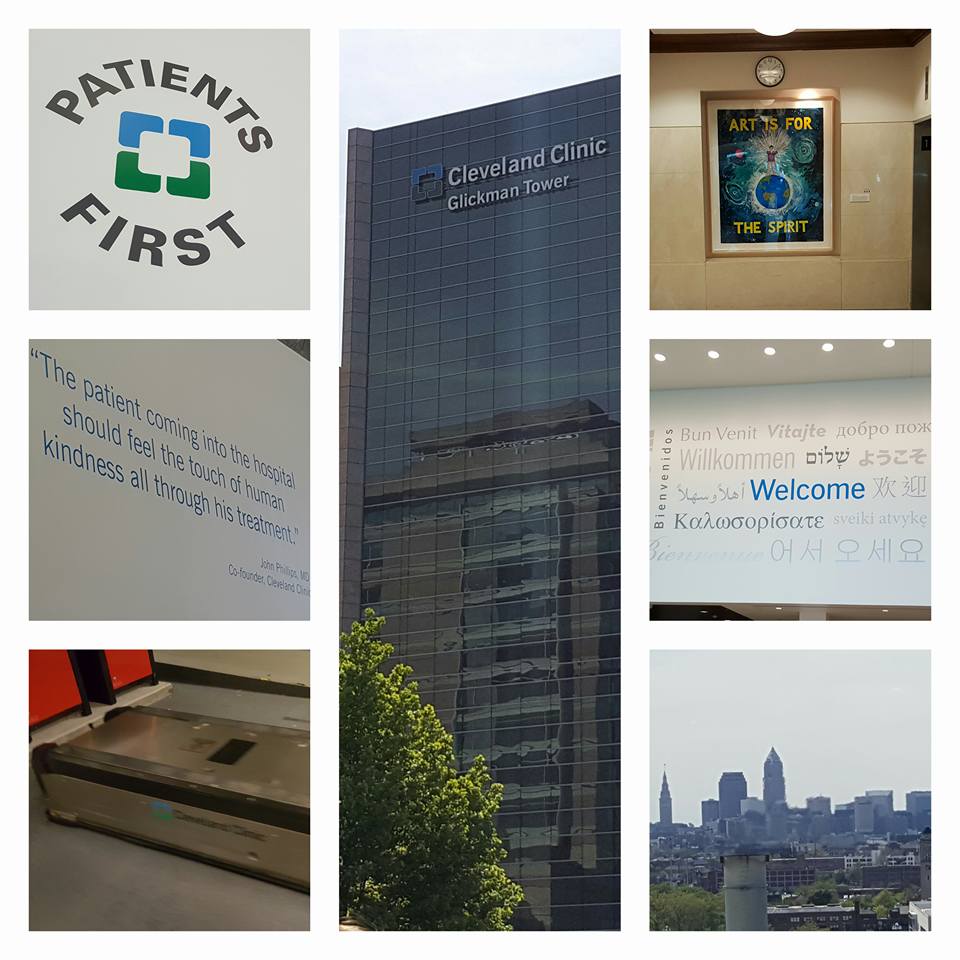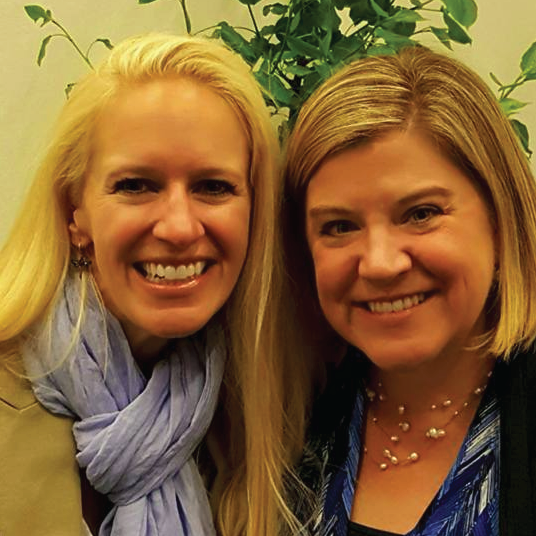
I had the immense honor of being a part of the Cleveland Clinic Patient Empathy Summit. This is the place where the idea of patient experience became a reality. These are the people who are making it happen. To say I was impressed is an understatement. But, I was also frustrated, furious, encouraged, inspired, saddened and motivated.
After hearing from healthcare providers – doctors, nurses, administrators and others – as well as patients and patient families, I saw patterns, themes and some missing moments.
Before I get started, though, I want you to know what incredible people these were.
Every story, every revelation led to more understanding and compassion. Everyone in that enormous convention center was focused on the overall well-being of all of us. Each one of us will interact with the healthcare system at some point in our lives. These are the people who are doing their best to make it a better experience for us. THAT is what I found encouraging. If the hearts are in the right place (and they are), anything is possible.
There is another side, however, and that’s what can go wrong for patients.
The stories were not about huge medical errors or botched procedures. They were about words, missed opportunities to connect, and what humanity is really about – emotions. We are not our parts. We are a whole person who needs holistic healing, whether we know it or not. (I’ll tackle some of this in a later post.)
My journey that led to presenting at the conference started after the terrible car accident my family and I experienced in August of 2014. Being a patient and a mom with the focus of a customer experience professional led me to view the entire experience a little differently. I wasn’t always recognized as a whole person. I wasn’t always kept informed as a mom. It often felt like I was navigating in the dark as we figured out how to take the next, difficult step.
We are OK. We made it. We are healthy, and we will always be grateful to those who helped us get there.
So back to the conference…
After hearing a few stories, certain patterns emerged for what both patients and providers want.
I should preface this by saying not necessarily every provider wants this. Transparency for doctors means posting the survey results for everyone to see. Transparency means publicly displaying the patient comments. Transparency means doctors, nurses and every other caregiver knows where they “rank” in delivering exceptional service.
But, as Toby Cosgrove, MD and CEO of Cleveland Clinic so bravely determined, sunlight is the best disinfectant. Transparency means creating a culture of accountability around the entire experience a patient has.
Regina Holliday, artist and activist, articulated the need for transparency for patients. Patients, she so perfectly stated, shouldn’t fight to see their own medical records. Patients should know what is said and done. Patients are the only voice that really matters. (Her incredible work with the Walking Gallery is a way to give patients that voice.)
This is the simple recipe for health, via Dr. Mark Hyman #pesummit
A photo posted by Jeannie Walters (@jeanniewalters) on
In a powerful discussion, Dr. Mark Hyman, co-author of The Daniel Plan, shared how our society is suffering alone. The chronic diseases we face – diabetes and obesity in particular – are contagious. You are much more likely to be obese if your best friend is. Engaging the community in health makes huge positive impacts on the individuals in that community.
In one example, a Native American health clinic required patients to join “Talking Circles,” which were part of their tradition. Belonging to these groups led to improved overall health results for the patients.
Gratitude is the quickest path to happiness says @itsandrewhorn #PESummit 100% agree -thanks for spreading gratitude pic.twitter.com/tvfxibu9Co
— Tim Keogh (@timmkeogh) May 17, 2016
In another example, Rick Warren’s church congregation underwent radical changes as a group with amazing results. Community is a driver in both health and illness. This theme was touched on yet again by Andrew Horn, founder of Tribute. Data reveals not only that gratitude has a positive impact on health, but that weak social ties can be more harmful to someone than obesity.
Community and powerful connections are the cures.
What does it mean to really listen? This was a theme which rose up from patients and caregivers alike.
Listening means understanding not only the disease or the symptoms of your patients, but understanding where they are that day. Receiving a diagnosis of a chronic condition or challenging disease can be overwhelming one day and “life as the new normal” the next.
Listening means understanding the challenges of getting to an appointment – scheduling, parking, navigating through a medical campus – create anxiety for a patient in an already stressful situation. Listening means removing the barriers between doctor and patient.
Listening means partnership.
Healthcare is part precise science, part emotional well-being and a dash of the mysterious unknowns. To try to define it as one of these things is a false assumption. Humans are wonderfully complex and irrational. We are complicated and crabby and compassionate and compelling all in the same moment. Medicine and healthcare have to be about the entire person, the entire experience and the entire enigma of humanity all at once. It is no easy task.
But based on what I saw this week, we are making strides to get there.

I’ve never cried that much at a conference. I loved every minute. Thank you@ClevelandClinic and @boissyad for an amazing few days. #PESummit
— Jeannie Walters (@jeanniecw) May 17, 2016
If you enjoyed this post, please read Part 2: 5 Ongoing Challenges of Patient Experience
 Jeannie is an award-winning customer experience expert, international keynote speaker, and sought-after business coach who is trailblazing the movement from “Reactive Customer Service” to “Proactive Customer and Employee Experience.” More than 500,000 people have learned from her CX courses on LinkedIn Learning, and her insights have been featured in Forbes, The Chicago Tribune, The Wall Street Journal and NPR.
Get Jeannie’s insights in your inbox each week by subscribing to The Weekly Win and follow her on LinkedIn, Instagram and YouTube.
Jeannie is an award-winning customer experience expert, international keynote speaker, and sought-after business coach who is trailblazing the movement from “Reactive Customer Service” to “Proactive Customer and Employee Experience.” More than 500,000 people have learned from her CX courses on LinkedIn Learning, and her insights have been featured in Forbes, The Chicago Tribune, The Wall Street Journal and NPR.
Get Jeannie’s insights in your inbox each week by subscribing to The Weekly Win and follow her on LinkedIn, Instagram and YouTube.